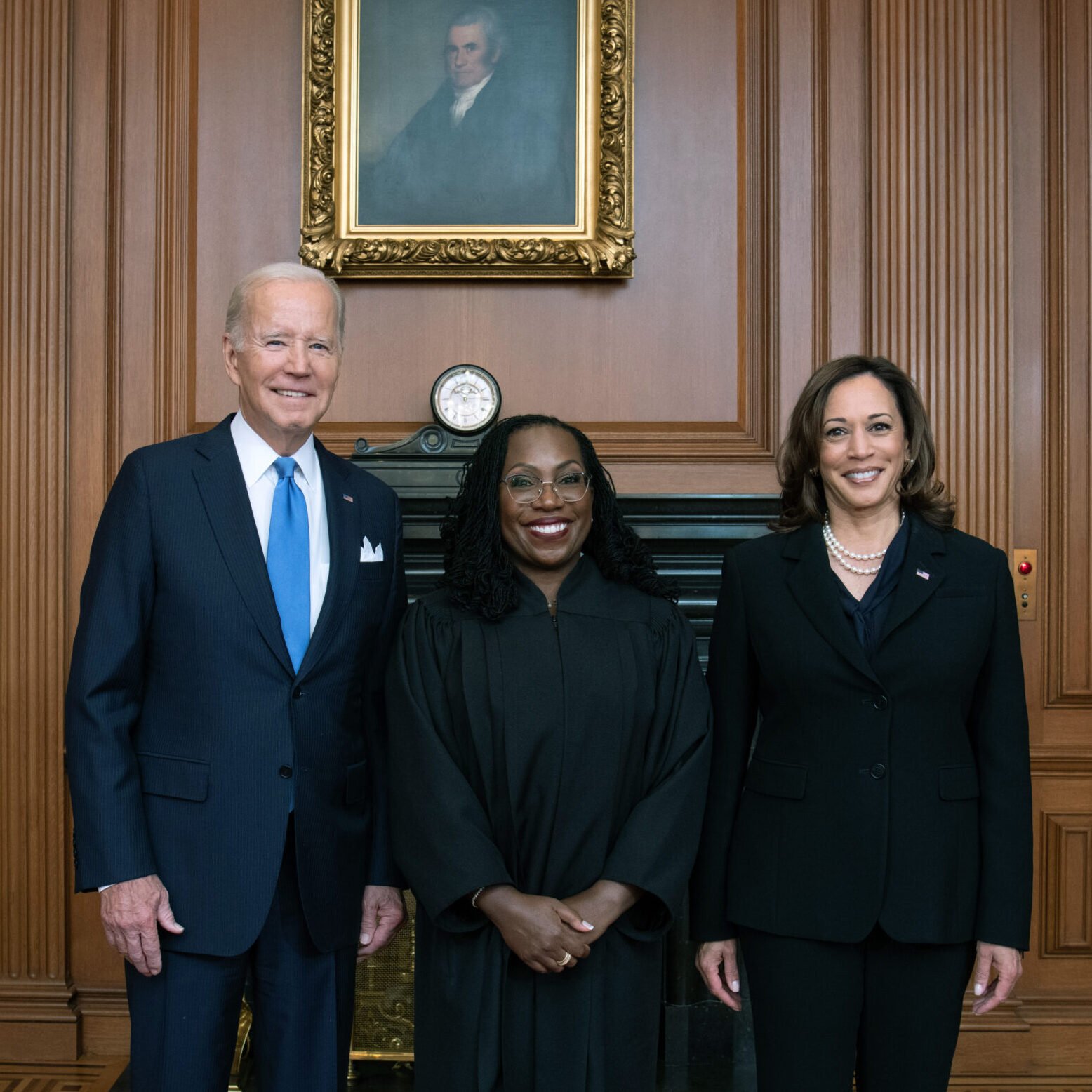
Justice Ketanji Brown Jackson started her legal career clerking for the U.S. District Court of Massachusetts in 1996 and then the U.S. Court of Appeals for the First Circuit in 1997. After dipping into the private sector for a year, she clerked for Supreme Court justice Stephen Breyer from 1999 to 2000. After several years in private practice, Jackson became a public defender in Washington, DC. From there, she received her first presidential nomination in 2009, when President Barak Obama nominated her to the United States Sentencing Commission. While with the Commission, she helped bring about the “drugs minus two” amendment, which reduced the offense levels for common drug crimes. In 2012, Obama nominated her again, this time to the U.S. District Court for the District of Columbia, a post for which she again received a full Senate confirmation in 2013. This was followed by her elevation to the U.S. Court of Appeals for the District of Columbia Circuit in 2021 and shortly after President Joe Biden’s nomination to the Supreme Court. She’d been considered for the same office in 2016 after the death of Justice Antonin Scalia though Obama ultimately selected Justice Merrick Garland. However, this previous vetting process undoubtedly helped her land a 53-47 bipartisan procedural Senate vote in March of 2022, followed by her confirmation in April and her swearing-in as the 116th Supreme Court Justice on June 30.
Why They Made the Worthy 100: Before she became the first black woman elected to the Supreme Court, Justice Jackson had a history of significant rulings that supported women’s rights, fair labor practices, and the rights of immigrants. In 2018, when the Department of Health and Human Services announced it would shorten the grant periods for teen pregnancy prevention programs from five years to three years, Jackson ruled that the move violated the Administrative Procedure Act because it came without notice or even adequate explanation. In 2019, when the Trump administration and several immigration law advocacy groups wanted to expand the categories of noncitizens who would be subjected to “expedited removal” from the country, Jackson entered a preliminary injunction to stop the revised rules. She wrote at the time the argument “reeks of bad faith, demonstrates contempt for the authority that the Constitution’s Framers have vested in the judicial branch, and, ultimately, deprives successful plaintiffs of the full measure of the remedy to which they are entitled.” Since Jackson’s appointment happened only a short time ago, Jackson didn’t take her seat until the court was already in its summer recess with work to resume this fall. Given that several other justices are using this time to craft opinions on such things as the Roe v. Wade reversal and expanded gun rights, Jackson will need the prep time to enter those battles effectively when the court reconvenes. For her part, Jackson says she views her successful nomination as a message to both her and a population that has felt increasingly disconnected from the country’s judicial direction. During a recent Library of Congress appearance, Jackson stated that the people she’s met since her confirmation have “what I can only describe as a profound sense of pride and what feels to me like renewed ownership.”
